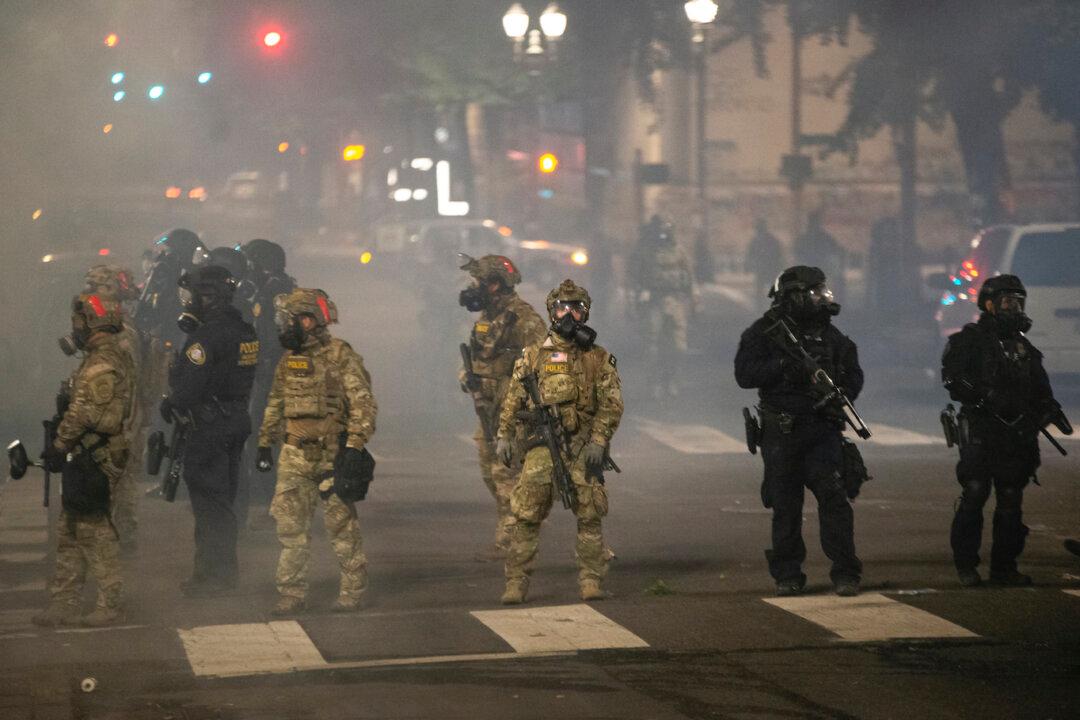A federal judge denied an effort by Oregon’s attorney general seeking to prevent federal law enforcement agents from making arrests amid violent rioting in Portland.
Oregon’s attorney general, Ellen Rosenblum, filed a lawsuit against several federal agencies last week alleging that their officers have engaged in policing tactics that have violated the constitutional rights of residents in the state. In particular, she accused the officers of allegedly detaining protesters on the streets of Portland and placing them in unmarked vehicles without probable cause.




